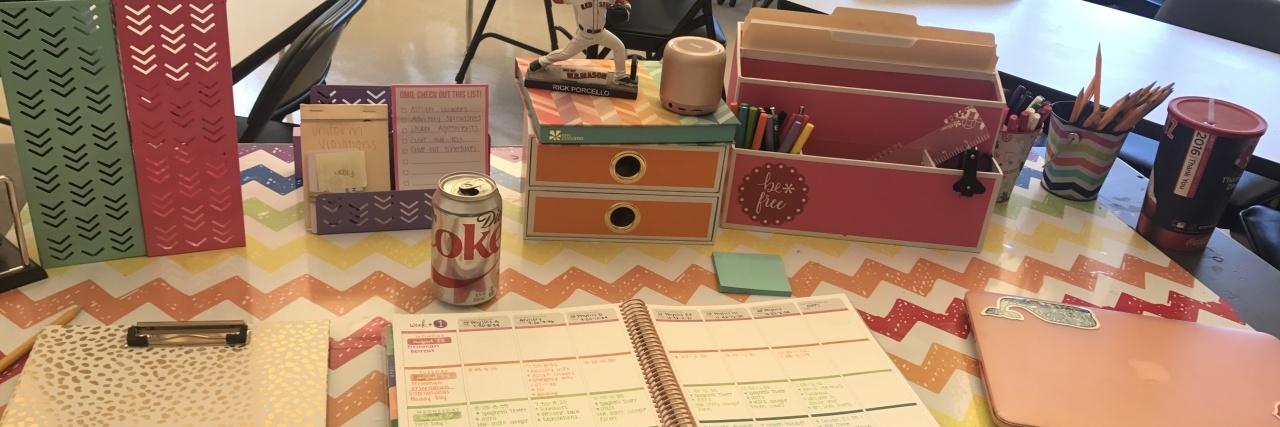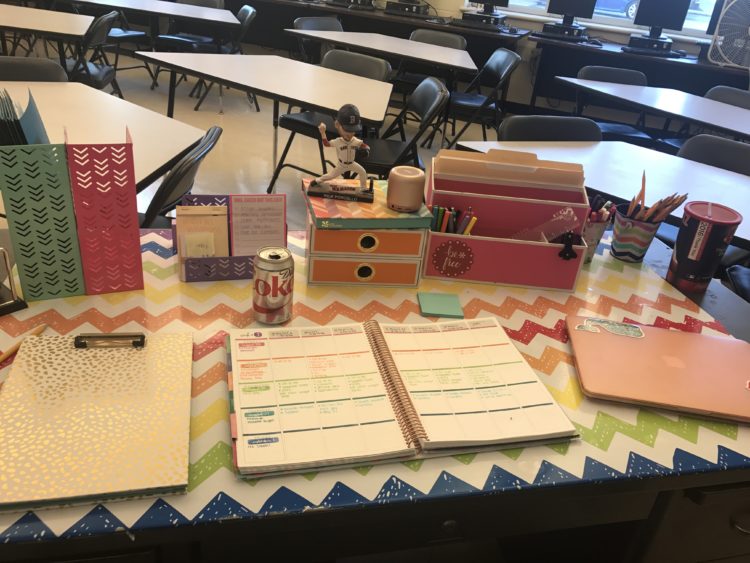This past April, I was admitted to the hospital for pain and nausea control for the third time of the school year. After meeting with several physicians and surgeons, I was finally diagnosed with and had surgery for a Chiari malformation (type 1). While it was an incredibly difficult decision to leave my kids in the hands of a long-term substitute, I knew I had to take care of myself in order to be able to take care of my students.
A couple of weeks ago, approximately half of our senior class came back as we went on a senior leadership retreat, which helps our students transition to the leadership roles they will take on during their final year of high school. I had the privilege of chaperoning this trip, and was able to reunite with many of the students I had to leave in April. It felt so good to be back with my kids; I know they were all incredibly concerned about my health, and it was important to me to show them I was back.
In the middle of the retreat, one of my students, who will be taking my second-year AP course this year, looked at me and asked, “Ms. Fagan, the surgery fixed your brain, right? So that means you won’t be out more this upcoming year, right?”
I looked him in the eye and said, “Yes,” and then had to turn away and hold back tears.
See, I want that answer to be yes, 100 percent certain. I hope and pray to God every day that the answer is truly yes. But I don’t know if that will actually be the answer to that question.
Yes, I had a surgery to fix my Chiari malformation. Yes, knock on wood, it has been successful in reducing my symptoms thus far. But having three chronic illnesses – Chiari malformation, gastroparesis and adrenal insufficiency, it’s not as simple as brain surgery to “fix” everything.
And nothing scares me more than not knowing whether I’ll go into an adrenal crisis or have a GP flare that will land me in the hospital.
Because nothing scares me more than the possibility of abandoning my students again.
Everyone who works while battling chronic illness worries about meeting job expectations, about disappointing supervisors, about getting fired for missing too much work. But being a teacher with a chronic illness (or multiple chronic illnesses) adds an extra complexity to the situation.
On the surface, the worries are things like, “What if I go into a flare when it’s time to submit report card grades?” or “Do I have enough sub plans to get me through a hospitalization?” or “Will the sub finish preparing my students well enough for the AP exam in May?”
But those pale in comparison to the worries I feel toward my students. From the moment these kids first walk into my classroom, which will be tomorrow, for many of them, they become “my kids.” I care about every single one of their stories. The worries quickly become things like “Will the students whom I’ve developed a strong rapport with feel like they have another adult in the building they can trust and lean on?,” “Will the substitute know [student] needs tough love in order to work to [her/his] potential?,” “Will my student who is dealing the death of a sibling fall through the cracks because I can’t follow up on how he’s doing in all of his classes?” and “Will my student who has dealt with three teachers leaving this year due to unforeseen circumstances be able to handle all the change he’s experienced?”
I feel immensely privileged to be a part of a profession that has so much responsibility, because with that comes an incredibly satisfying feeling. Working with a chronic illness is difficult, and it’s because of my students that I am able to get out of bed on some of the harder days.
I know there may be a day where the answer to “That means you won’t be out more this upcoming year, right?” becomes a definitive “no.” I know if, or when, that day comes, it will be unavoidable. The struggles teachers face never really become easier, and the same holds true for teachers with chronic illnesses. Over time, however, you become more prepared to deal with the situations. So I’ll prepare as best I can. I’ll decorate my classroom to ensure it’s welcoming, I’ll walk into school every day with a smile on my face, ready to foster those relationships, and will be ready to work diligently in the months ahead, so that, if that day comes, my students are well prepared for any transitions that may be thrown at them.
We want to hear your story. Become a Mighty contributor here.


